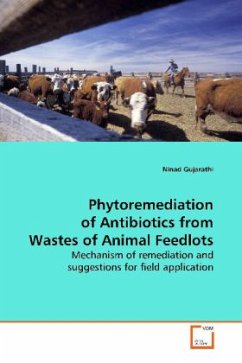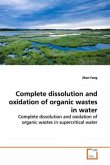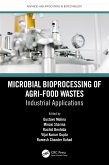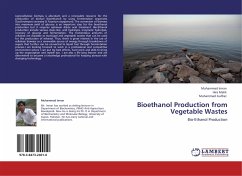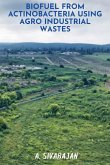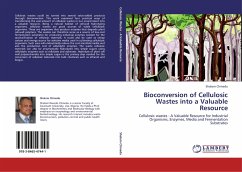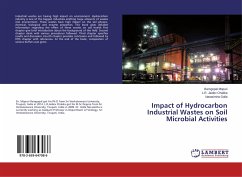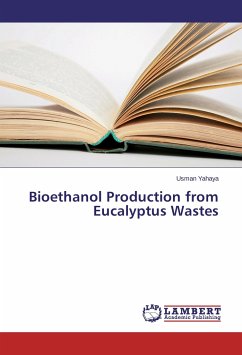Extensive use of antibiotics and their subsequent
discharge to the environment contributes to
antibiotic pollution. Antibiotics when released in
to the environment may induce antibiotic resistance
among several bacterial species. The development of
antibiotic resistance, which was recently reported,
may pose severe health hazards to humans through
transmittance of the ''resistance'' gene from non-
pathogenic to pathogenic microorganisms. This book
summarizes a novel scientific study carried out to
explore the potential of phytoremediation in
controlling antibiotic pollution. The mechanism of
phytoremediation suggested is biodegradation by root-
secreted compounds. Some strategies are proposed for
field applications. Additionally, the plant systems
show potential for significant improvements in
quality of wastewater via reduction of organic
loads. The targeted readers for this study include
environmental consultants, animal feedlot industry,
academic scholars and finally the graduate students
who wish to take this forward.
discharge to the environment contributes to
antibiotic pollution. Antibiotics when released in
to the environment may induce antibiotic resistance
among several bacterial species. The development of
antibiotic resistance, which was recently reported,
may pose severe health hazards to humans through
transmittance of the ''resistance'' gene from non-
pathogenic to pathogenic microorganisms. This book
summarizes a novel scientific study carried out to
explore the potential of phytoremediation in
controlling antibiotic pollution. The mechanism of
phytoremediation suggested is biodegradation by root-
secreted compounds. Some strategies are proposed for
field applications. Additionally, the plant systems
show potential for significant improvements in
quality of wastewater via reduction of organic
loads. The targeted readers for this study include
environmental consultants, animal feedlot industry,
academic scholars and finally the graduate students
who wish to take this forward.

